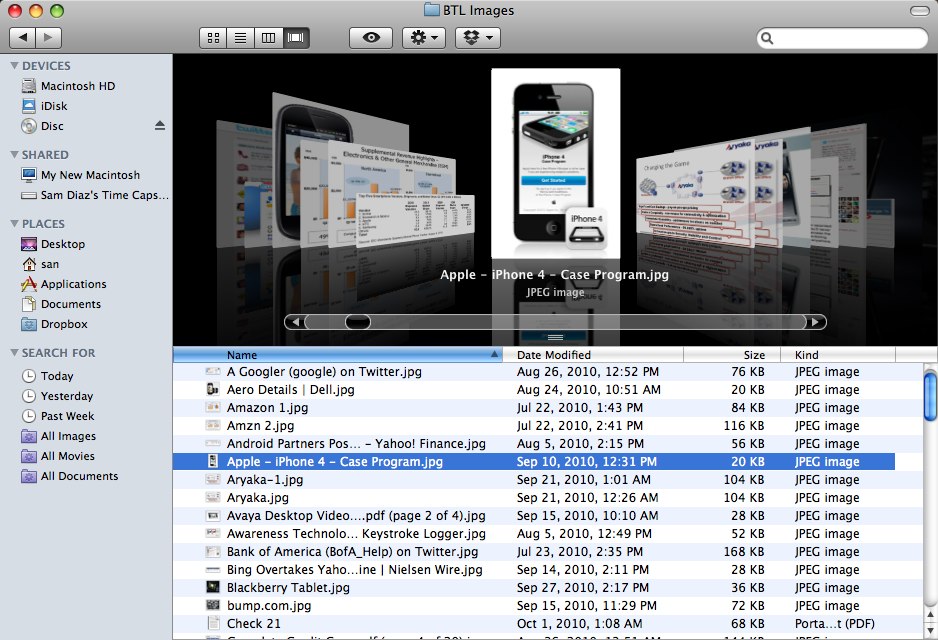Apple facing $625.5 million patent judgement; files emergency motion for stay

Apple could be facing what might be one of the largest patent awards on record - $625.5 million - if a judge upholds a ruling issued Friday that the company infringed on three patents held by a technology company founded by Yale University computer science professor David Gelernter, the Wall Street Journal reported late Monday.
A federal jury in Eastern District of Texas on Friday recommended that Apple pay damages of $208.5 million for each of the three patents owned by Mirror Worlds LLC. On Sunday, Apple filed an emergency motion with the court seeking a stay in the verdict. The company reportedly argued that there were "oustanding issues" with two of the three patents and that that justified the stay.
The suit was filed in 2008 and cites patents "covering how data is organized in streams and displayed." The culprits: iPods, iPhones and Macs with "Cover Flow," which allows users to flip through images of files; Spotlight, which allows users to search for files on the computer and Time Machine, which is file backup software.
The ruling would be large but not the largest. The largest patent case was $1.67 billion last year against Abbott Laboratories won by a biotech unit of Johnson & Johnson and NYU, the WSJ reported.
Separately, the WSJ noted that Gelernter is known "for inventions used in computer communication and distributed programming systems," as well as being the target of Theodore Kaczynski in a 1993 mailbomb incident that left him critically injured. His company was based on ideas for his 1991 book, "Mirror Worlds: or the Day Software Puts the Universe in a Shoebox…How it Will Happen and What It Will Mean."
Gelernter was featured in a ZDNet post last year, "Visions of cloud computing and Web 2.0, circa 1990s: the world catches up to Yale's David Gelernter,"which noted his predictions of the World Wide Web and cloud computing, as well as his work in Semantic Web.
